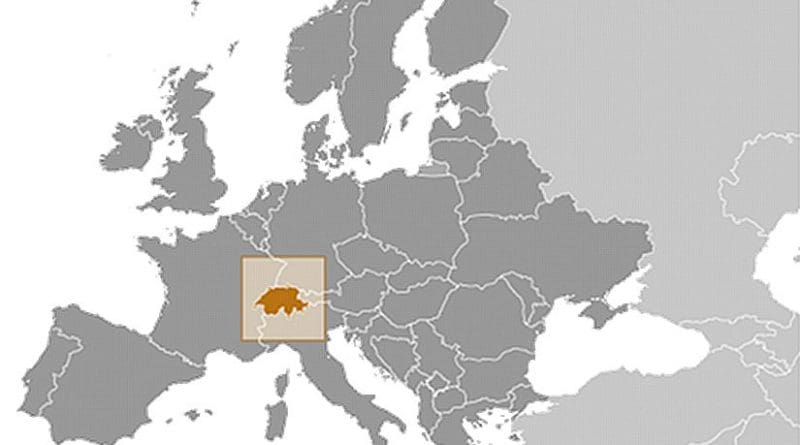$33 Billion Cost Of Swiss Nuclear Decision
Switzerland’s decision not to build any new nuclear generating capacity will cost the country some CHF 30 billion ($33 billion) up to 2050, according to the country’s Department of the Environment, Transport, Energy and Communications (DETEC). The department has undertaken a modeling of Switzerland’s energy future to 2050 which will be used in formulating the country’s new energy policy.
The country’s five nuclear reactors generate some 40% of its electricity, but following the nuclear accident at Fukushima in March 2011 the Swiss parliament resolved not to replace any of them at the end of their service lives, which would effectively see nuclear phased out by 2034.
An analysis by DETEC has how now confirmed that the nuclear phase-out “is feasible and that its economic impact will be limited.” DETEC has informed the Federal Council (government) of its conclusions, which has now endorsed the findings. The energy package – called Energy Strategy 2050 – will now be incorporated into a bill and put to consultation in later this 2012.
According to DETEC, an energy forecast by the Swiss Federal Energy Office (SFOE) has already shown that the phaseout “was certainly ambitious but feasible.” The energy impact of the phaseout has been assessed through modeling. Costs, economic impacts and funding opportunities have also been examined. The government is convinced that the new energy policy “will create new opportunities for Switzerland as a crossroads of economics and research.”
The energy package scenarios look at three periods: between now and 2020, then to 2035 and until 2050. The package of measures will take effect only from 2015. According to DETEC, there will be no impact on the overall final energy consumption and electricity before 2020. However, total energy consumption must decrease by 70 TWh between now and 2050, while electricity consumption would need to drop by 21 TWh over the same period. In order for Switzerland to compensate for the loss of nuclear generating capacity it would need to increase generation from renewable energy sources. In addition, to ensure security of electricity supply in Switzerland, particularly during the winter, the country would have to construct combined heat and power facilities as well as gas-fired combined-cycle plants. The carbon dioxide (CO2) reduction targets decided by the government could still be achieved by 2020, it claims, by increasing the CO2 tax and formulating a construction program.
DETEC said that the impact of these measures, as well as changing international and technological progress will be continuously monitored. Through this monitoring, the energy package “may at any time be complemented by other measures.” The package would be introduced using the existing taxes – including a carbon dioxide tax – on energy producers, but DETEC said that a new system must be developed for the period after 2020, when energy policy will shift alongside the development of climate policy. DETEC said that it “will ensure that the transition from the current incentive system to a new incentive system is done gradually and in an acceptable timeframe.”
DETEC said that its analysis shows that the 2050 energy strategy “is feasible and that its economic consequences are limited.” It noted that the significant investments in energy efficiency will generate substantial savings in energy import. Furthermore, the decrease in electricity demand due to increased efficiency will involve investments lower than expected up to 2050. However, significant investments will be necessary for the development of electricity generation from renewable energy sources. DETEC estimates that the additional costs attributable to the decision not to build new nuclear plants will total some CHF 30 billion ($33 billion) by 2050.
Given operating lifespans of 50 years, the first Swiss reactor to shut could be Beznau 1 in 2019, followed by Beznau 2 in 2021. Taken together these smaller units would remove only 730 MWe from supply. Another 372 would be lost with the shutdown of Mühleberg around 2022. The largest units are Gösgen with 985 MWe and Leibstadt with 1165 MWe, which would likely close in 2029 and 2034 respectively. Swiss utilities have been planning in recent years to build replacements for Beznau and Mühleberg as well as a new unit at Niederamt.


Good decision not to build any more nuclear plants … as I am sure people in Australia can relax a degree more than before…just digging up and around ruins not only the looks geographically it’s been proven in the uS with ratio’s of associated deaths to be stupid indeed.
There is significant amounts of evidence that even fossil fuel generation of electricity is right there among the stupid acts of a presently overzealous group of politicians in the uS.
Sweden now can use geometrics to redesign electric generators, etc, and even possibly get gold and precious metals for their mental labour in return.
Rumour is that there are political groups associated with groups in Hollywood trying to take down the addition of a real small usb sized computer introduced on the world markets, that runs linux instead of the licensed to put you in jail windows or apple programs.
Cotton Candy …
http://www.pcworld.com/businesscenter/article/251088/with_raspberry_pi_and_cotton_candy_linux_launches_a_revolution.html
I was personally introduced to a family in Sweden…and and know their daughter as a friend. People in Sweden are intelligent yet not the least bit narcissist.
Everyone have a wonderful day…